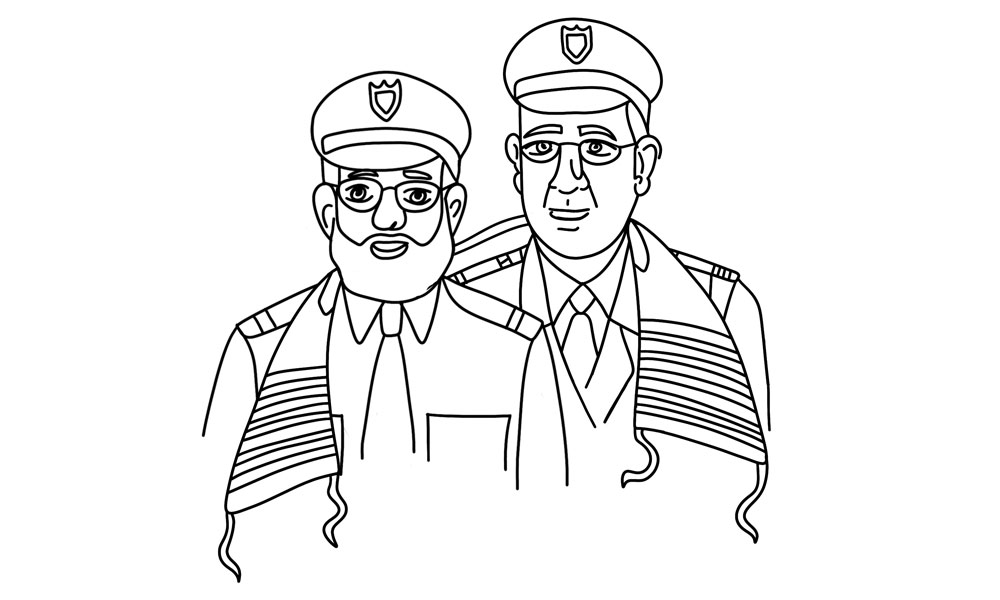In 1970 The New York Times ran an article about the secret language of New York City police officers. Among the lineup of words such as “hairball” (meaning a veteran officer) and “shoo fly” (an officer brought in to ensure others aren’t sleeping on the job), one stood out: “rabbi.” The article explained that throughout the New York Police Department (NYPD), a person’s “rabbi” was common parlance for a high-ranking sponsor within the force.
While it may seem odd to see the word “rabbi” out of its religious context, in professions where having friends in the right places is vital, it became shorthand for someone willing to be a mentor and protector. The renowned language columnist William Safire and others have traced the origins of the slang term back to the NYPD of the 1950s and note that since the 1970s, “rabbi” has been used in the political and journalism worlds as well to signify a sponsor or sage adviser. In his popular political dictionary, Safire cites the example of Newsweek columnist and self-described WASP Stewart Alsop, who, after being asked to be someone’s rabbi, “delightedly signed all future correspondence with his new colleague in journalism, ‘Your rabbi, Stew.’”
More recently, on the August 28 episode of The Beat, MSNBC Legal Correspondent Ari Melber noted, “In some circles we call it a rabbi, in others we call it a sherpa, a guide, a sage” when discussing the role Washington Post political columnist Eugene Robinson has played in many young reporters’ careers. Like Alsop, Robinson seemed delighted by the honorific.
While it’s unclear how the word took the leap from Jewish clergy to protector or champion, linguist Robert Claiborne says that in police contexts, a rabbi, “like a real rabbi, is thought to have influence with higher powers.” In his book Black Police in America, historian Marvin Dulany traces the term more specifically to Jewish police officers who promoted fellow Jews. (He also notes that Irish cops have a similar dynamic called a “hooking system.”)
“The term often has the connotation of a ‘connection’ who can enable you to achieve a goal which might be very difficult or impossible on your own,” says Alvin Kass, an actual rabbi and the current chief chaplain of the NYPD. Kass recounts how, when he first became a police chaplain in 1966, the slang term was so prevalent that he would introduce himself by saying, “You may have heard that to get anywhere in this department, you need a ‘rabbi.’ I am not that kind of rabbi.”
The word’s trajectory into slang makes sense to Sarah Bunin Benor, a professor of linguistics and contemporary Jewish studies at Hebrew Union College. She characterizes it as a semantic journey that other Jewish words have gone on, including “kosher,” which is now more generally used to mean acceptable, or “shmoozing,” which is a common synonym for networking. “Many words change meanings as they move from a particular community to the broader population,” says Benor. She also notes that this can go both ways. “These uses can blur over time, so Jews can begin to use the version from the broader population.”
Deborah Tannen, a professor of linguistics at Georgetown University, provides an alternative origin, suggesting the slang term might stem from the Yiddish-derived “rebbe.” “While both originate from the same Hebrew root, rav, rabbi generally means a teacher or scholar of Jewish law, while rebbe, more often associated with the Hasidic movement, tends to denote a wise elder.” This, Tannen notes, comes a lot closer to the slang term “rabbi.”
According to Kass, the use of “rabbi” as slang for a mentor has fallen out of use within the NYPD. However, it still pops up in popular screen depictions of police work. The dramas Law and Order and NYPD Blue, for example, use the term liberally. David Simon’s critically acclaimed series The Wire also employs the term throughout its fourth season. In one memorable example, the fictional Baltimore Mayor Clarence Royce offers to become a rabbi to a young police officer. But just a few episodes later, after Royce loses his reelection campaign, the police officer is fired. “In case you haven’t been paying attention to the election results,” his boss warns him, “your rabbi has left the building.”
So what do actual rabbis make of the alternative usage? Is it pejorative? A type of flattery? Jack Moline, a retired rabbi and former executive director of the Interfaith Alliance, views it as no big deal, something completely unconnected to him. “I feel the same way I imagine a physician feels when a drug dealer is called ‘doc.’” In the end, just who is a “rabbi” might be a matter of perspective.
Moment Magazine participates in the Amazon Associates program and earns money from qualifying purchases.


